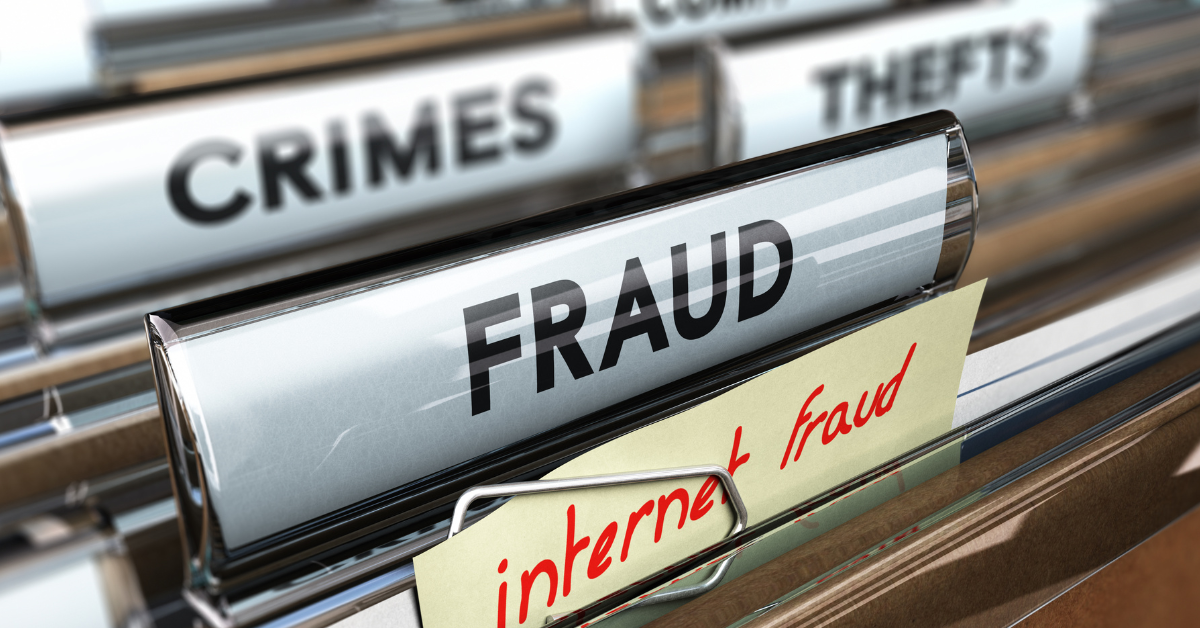Beware of Advance-Fee Scams: Protect Yourself
Advance-fee scams, also known as 419 scams or Nigerian scams, have been around for decades. These scams involve a fraudster promising the victim a large sum of money in exchange for a small advance fee. Unfortunately, many people fall victim to these scams, losing thousands of dollars and their personal information. In this article, we will discuss what advance-fee scams are, how to spot them, and how to protect yourself from falling victim.
What is an advance-fee scam?
An advance-fee scam is a type of fraud where the scammer promises the victim a large sum of money for a small advance fee. The scammer may claim to be a government official, a wealthy individual, or a representative of a company. They will often use official-looking documents and fake identities to make their offer seem legitimate. However, once the victim pays the advance fee, the scammer disappears, leaving the victim with nothing.

Types of advance fee scam
Don’t Fall for These Advance Fee Scams: How to Protect Yourself
- Lottery or Prize Scams
- Inheritance Scams
- Business Opportunities
- Romance Scams
- Rental Scams
- Job Scams
- Loan Scams
- Charity Scams
- Overpayment Scams
- Tax Refund Scams
How to Spot an Advance-Fee Scam
There are a few red flags that can help you identify an advance fee scam. These include:
- Unsolicited emails or letters: If you receive an email or letter from someone you don’t know, claiming to have a large sum of money for you, it is likely a scam.
- Requests for personal information: Scammers may ask for personal information such as your bank account details, social security number, or passport information. Never give out this information to someone you don’t know.
- Urgent or time-sensitive requests: Scammers will often create a sense of urgency, claiming that you must act quickly to receive the money. This is a tactic to pressure you into making a hasty decision.
- Poor grammar and spelling: Many advance-fee scams originate from non-English-speaking countries, so the emails or letters may contain poor grammar and spelling mistakes.
READ THIS ✅✅✅
How to Protect Yourself
The best way to protect yourself from advance-fee scams is to be cautious and vigilant. Here are some tips to keep in mind:
- Do not respond to unsolicited emails or letters. If you receive an email or letter from someone you don’t know, delete it or throw it away.
- Do not give out personal information. Never give out your personal information to someone you don’t know, especially if they are promising you money.
- Do your research. If you are unsure about an offer, do some research. Look up the company or individual online and see if there are any reports of scams.
- Use secure payment methods: If you do decide to make a payment, use a secure payment method, such as a credit card or PayPal. These methods offer more protection and can help you get your money back if you are scammed.
How Scammers Use Social Media and Email for Advance-Fee Scams
Scammers often use social media and email as a means to carry out advance-fee scams. Here’s how they do it:
- Social Media Impersonation: Scammers create fake profiles on social media platforms, pretending to be wealthy individuals, government officials, or representatives of reputable organizations. They may send friend requests or direct messages to potential victims, offering them a large sum of money in exchange for a small advance fee.
- Phishing Emails: Scammers send out mass emails, posing as legitimate organizations or individuals, with enticing offers of easy money. These emails typically contain links to fake websites that resemble the real ones, where victims are asked to provide personal information or make a payment to claim their supposed rewards.
- Fake Investment Opportunities: Scammers may use social media or email to promote fake investment opportunities with high returns. They promise quick profits and convince victims to invest money upfront, claiming it’s required to access the lucrative investment.
- Prize or Lottery Scams: Scammers send emails or messages informing victims that they have won a lottery, sweepstakes, or prize. To claim the prize, victims are instructed to pay an upfront fee or provide personal information, which the scammers then use for identity theft or further fraudulent activities.
- Job Offer Scams: Scammers may pose as legitimate employers on social media or email, offering lucrative job opportunities. They require the victims to pay for training materials, visa fees, or background checks, promising employment after the payment. However, once the payment is made, the scammers disappear, and the victim is left without a job or money.
To protect yourself from these scams, it’s important to be cautious and follow these tips:
- Be skeptical of unsolicited messages or emails from unknown individuals or organizations.
- Verify the legitimacy of any offer or opportunity by conducting independent research. Check for official websites, contact information, and reviews.
- Never share personal or financial information with anyone you don’t trust.
- Use strong and unique passwords for your online accounts.
- Install and regularly update the security software on your devices to detect and prevent phishing attempts.
- If you suspect that you have encountered an advance fee scam or any form of fraudulent activity, report it to your local law enforcement agency and the appropriate online platform or email provider.
By staying vigilant and informed, you can protect yourself from falling victim to these scams and help others do the same.
People also ask
- What does being a Nigerian prince mean?
- What is the Nigerian prince example?
- What happened in the movie Nigerian Prince?
- What is a 419?
- Does Nigeria still have a prince?
- What do Nigerians call their king?
- Is there a Nigerian royal family?
- Why do Nigerians love the Queen?
- Does Nigeria have kings and queens?
- What is the African Prince email?
- What did the Nigerian prince do?
- Who is Pius in the Nigerian prince?
- Which Nigeria beauty queen was shot dead?
- Is it safe to go to Nigeria now?
- Which king refused to bow to Queen Elizabeth?
- How do you say queen in Nigeria?
- Who is the first person to do 419 in Nigeria?
- How to detect a scammer in Nigeria?
- When did 419 started in Nigeria?
- Who is Princess of Nigeria?
- Who rules Nigeria?
- Has Nigeria ever had a king?
- Is the king in woman king a Nigerian?
- What is Pius known for?
- Who was the first Nigerian to become a noble?
- Who was the first queen without a King?
- Did Prince Philip ever bow to the Queen?
- Did the Queen ever bow to someone?
- What is the Nigerian word for wife?
- What is beautiful in Nigerian language?
- Does the Queen rule Nigeria?
- Who created Nigeria?
- Who is Nigeria owned by?
- Who is the richest man in Nigeria?
- Who rules Niger?
- How old is the country of Nigeria?
- What happened in 1999 in Nigeria?
- Is Niger an Arab country?
- Who sold Nigeria to British?
- Why is Nigeria the giant of Africa?
- How religious is Nigeria?
- Why is Niger called Niger?
- Do people speak Arabic in Niger?
- Why is Lagos called Lagos?
- Why did England want Nigeria?
- What was the old name for Nigeria?
- How do Nigerians greet?
- Is Nigeria a rich or poor?
- Who bring Islam to Nigeria?
- Who named Niger?
- What did Nigeria speak before English?
- What does Nigeria look like?
- Are Yoruba Muslims?
- Is Nigeria a safe country to work?
- Which country has the most Muslims?

What to Do If You Have Been Scammed
If you have fallen victim to an advance-fee scam, it is important to act quickly. Here are some steps you can take:
- Contact your bank or credit card company: If you have given out your bank account or credit card information, contact your bank or credit card company immediately to report the scam.
- File a report. You can report the scam to the Federal Trade Commission (FTC) or your local law enforcement agency.
- Change your passwords: If you have given out your passwords, change them immediately to prevent further access to your accounts.
By being aware of advance-fee scams and following these tips, you can protect yourself from falling victim to these fraudulent schemes. Stay vigilant, and always remember: if it sounds too good to be true, it probably is.
READ THIS ✅✅✅
